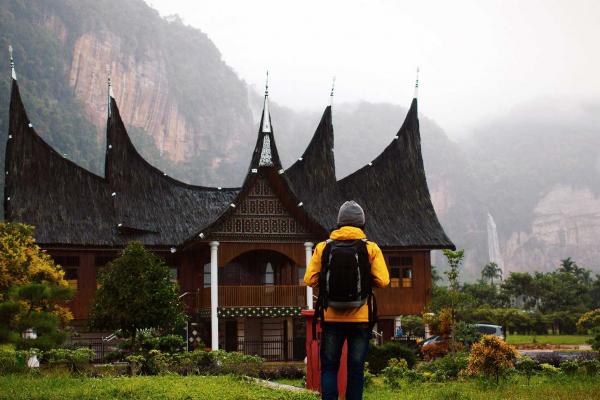Under President Yoweri Museveni, the country has managed to shake off its despotic past and improve its economy and human rights record. In recent years however, growing allegations of government corruption and the unresolved nineteen-year-long civil war in the north, have led international observers to wonder what the future will hold for this young democracy.
History
Uganda is a country of many tribal groups and nearly forty different languages, although English has been adopted as country's official language. Historically, the region was divided into numerous tribal kingdoms, the most powerful of which was the Kingdom of Buganda. The arrival of Europeans in the mid-1800s spelled the beginning of the end for the complicated system of regional kingdoms in the area that, while volatile, managed to maintain an uneasy equilibrium.
The imposition of European religion by missionaries, the arbitrary setting of political boundaries without regard to traditional claims, and the political intrigues that developed as one kingdom vied to use European firepower to strengthen its position over others, all served to undermine traditional forms of governance.
From 1894 until 1962, the country was ruled as a protectorate of the United Kingdom with the British exploiting the fertile land to grow cotton and coffee for export. The British implemented a system of indirect colonial rule and placed the dominant Baganda people in positions of power. This policy has served to perpetuate inequality among Uganda's many tribes even today. In fact, it has been said that the British succeeded in creating a nation divided amongst itself: firstly by favouring those Baganda who had adopted Protestantism over Catholic, Muslim or traditional beliefs, and secondly, by replacing traditional clan leaders with appointed Baganda administrators.
The first rumblings for independence came during the 1950s but didnêt gather much steam until late in the decade, when a quota of Africans was elected to the national government. They formed the Uganda Peoples' Union, an alliance of non-Buganda leaders. In the ensuing years, Uganda's politics became polarised: Catholic versus Protestant; Buganda versus everyone else.
Finally, Milton Obote led Uganda to independence in 1962 after forming an unlikely alliance between his non-Baganda, United Peopleês Congress, and the pro-Baganda, Kebaka Yekka (KY) party—an alliance based only on their mutual non-Catholicism.
Obote inherited a country now so divided along ethnic and religious lines that it was virtually ungovernable. In 1966, he changed the constitution and made himself "Life President of Uganda”. A year later, he abolished kingdoms and gave the military sweeping new powers. Increasingly, he relied on brutal force to maintain the appearance of stability.
In January 1971, Obote left the country for a Commonwealth conference. Before leaving, he had sent a memo to the commander of the Ugandan army, demanding an explanation for four million U.S. dollars that had gone missing from military coffers and his role in the murder of a Brigadier and his wife. The commander, Idi Amin responded by staging a military coup in Oboteês absence.
Amin's brutal rule over the ensuing years is legendary. By the time Amin was finally ousted with the help of the Tanzanian Army, in 1979, an estimated 300,000 people had been killed, many of them tortured to death. Thousands of others had been sent into exile. The countryês economy and infrastructure had been destroyed.
A highly charged climate of political intrigue eventually saw Obote back in power after blatantly corrupt elections marred by intimidation. Obote now faced new opposition.
The National Resistance Movement (NRM), formed by Yoweri Museveni and made up largely of orphans who had been left in the wake of Obote's and Amin's brutality, began a guerrilla war against Obote's government. Obote responded with characteristic violence: tens of thousands of civilians were slaughtered by his troops in the Luwero Triangle north of Kampala as the world turned a blind eye. It is a period that many Ugandans regard as being worse than the preceding years under Idi Amin.
Obote was finally stopped and, for the second time, forced into exile by his own military commander, Tito Okello. Okello entered negotiations with Museveni and the NRM, but talks broke down and Museveni returned to the bush. A short time later, the NRM entered Kampala, Okello surrendered quietly, and Museveni was sworn in as president.
Museveni's past three terms in power have been marked by political stability and relative economic growth. He has introduced western-backed economic reforms, legally recognised the old kingdoms, and has taken steps to improve the country's human rights record.
Uganda has also been applauded for waging one of the most successful national campaigns to combat HIV-AIDS in Africa, although there have been questions surrounding exaggerated statistics.
Recently, Museveni has come under criticism because of a change to Uganda's constitution that will allow him to run for a fourth consecutive term as President, and his apparent slowness at allowing multi-party elections. Early in his first term, in an effort to quell ongoing ethnic violence, Museveni instituted a ban on independent political parties in the country. Instead, he put in place a so-called "non-partisan democracy” where individuals, not parties, are elected to positions in the government.
Museveni has argued that after decades of misery, his country needs stability, not more parties divided along ethnic lines, but this past July, Ugandans voted overwhelmingly for scrapping the no-party policy.
Ongoing shame in the North
While most Ugandans have reason to be optimistic about the future, a cloud hangs over the north of the country. For the past 19 years, the Lord's Resistance Army, has waged a campaign of terror among the civilian population of Ugandaês Acholi region near the border with Sudan.
Led by Joseph Kony, the LRA has no clear political agenda other than to overthrow the central government and establish its own radical government based on ambiguous, quasi-religious ideas.
To date, tens of thousands of people have been killed, maimed, tortured, raped, or sold as slaves. According to a UN statement, the LRA is unrivalled in the world for its sheer brutality. The majority of the victims are children and young adults who are abducted and forced to commit atrocities as child soldiers.
An estimated 1.2 million people in the region have been forced to flee their homes and now live in internally displaced persons (IDP) camps. Afraid of being abducted, thousands of children, the so-called "night commuters”, walk many kilometres every evening, to the relative safety of guarded compounds operated by hospitals and NGOs.




